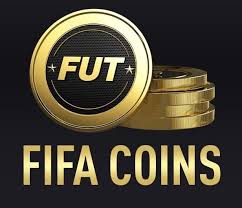Certainly buying FIFA coins has some definite advantages however it also comes with its disadvantages which is why knowing the pros and cons of purchase these are important before purchase. In other ways, the ability to buy coins short-cuts players through grinding for coin by playing — on one hand, that allows you to just go out and get a great team faster than any grind should let you, but it also severely undercuts the value of good performance in-game. With great team comes great success, so aside from high-demand periods (like TOTS) or other special events that may pop up, simply having more coins on hand allows players to make immediate upgrade choices for top-tier players and get one step ahead of the pack. A recent survey revealed that 60% of hardcore FIFA gamers turn to buying coins as their first port-of-call when looking at ways in which they can keep apace with the competition, underlining just how widespread and acceptable this method is.
It saves a large amount of time purchasing FIFA coins from the perspective of cost-efficiency. The traditional methods of grinding for coins either by playing games normally, trading them in the transfer market or completing Squad Building Challenges (SBCs) are seeing diminishing returns. Providing an accelerated path to team improvement, spending cash on coins is a lucrative choice for gamers with minimal time each week but prepares their encampment in advance of Weekend League or other high-stakes modes.
But, on the flip side there are substantial risks and negatives. Apparently, the only real issue is that they could get their accounts banned. EA has been pretty black and white in its views on coin buying, making it a bannable offense if detected. The situation is not different in other countries like Australia, and reports have shown that around 10% of coin buyers penalized which adds risk to invest on it. In addition, prices on third-party platforms constantly change introducing even more fluctuations. Coin prices can increase by 20% to 30%, especially in long-lasting gaming periods, making fewer purchases are going around.

When it comes to the purchase of FIFA coins, another area that you cannot take lightly is security. Unscruitinized sales can also result in scams and such, with non-delivery of coins or account hacking reported by buyers. To avoid all that, you have the option of using trusted platforms with secure payment options, guarantees and quick refunds (but still need to be paid attention where it is safe to buy from). Which is why one expert put it this way: “refrain from high risk [sic] and stand-up to licensed sellers, because even when cooperating they can face an account ban.”
There is also a moral objectivity on buying coins. Critics of such a system argue that it creates an unfair playing field, as those who buy the coins have less reason to play than someone grinding out rewards for their favorite characters. Accelerating players in this manner can, of course, inflate the value of those transfer market—affecting every single player on a team through grossly exaggerated fees. Some view it as a dishonest trade of time for money, while still allowing those who pay to help balance the economy; on the flip side others see this and akin players (specifically higher levels) purchasing more cosmetic items even if they give no gameplay advantages.
The choice for those wondering whether to buy FIFA coins is always where you are willing to push that convenience/risk balance. The benefits of adding to your team are obvious, but account penalties and hazy market waters weigh even more.